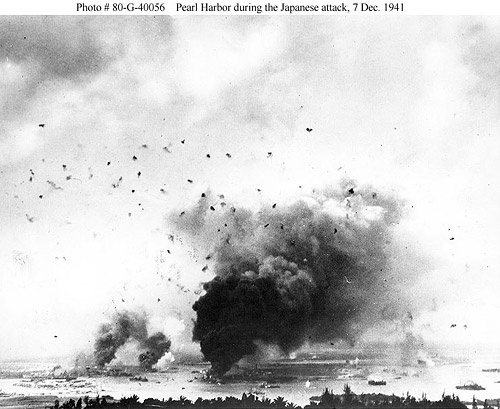My friend Bruce Kesler sent me an article by Dr. Angelo Codevilla, “American Statecraft and the Iraq War“, a senior scholar at The Army War College, that appeared under the aegis of The Claremont Institute. The critique offered by Codevilla is scathing; in many places his argument is quite insightful and in others, his heavily state-centric approach to international affairs shares the blindness of the elite he criticizes. An excerpt:
“The occupation was unnecessary to any rational American purpose. As President George W. Bush spoke on April 30, 2003, under the banner “Mission Accomplished,” representatives of the State and Defense Departments in Iraq were putting the finishing touches on the provisional government to which they were to devolve the country’s affairs two weeks later. There was to be no occupation. Iraqis would sort out their own bloody quarrels. The victorious U.S. armed forces, having turned Saddam Hussein’s regime over to its enemies, would challenge the Middle East’s remaining terror regimes to adjust their behavior or suffer the same fate. But even as Bush seemed to be recruiting a sovereign Iraqi government, he was interviewing the disastrous Paul “Jerry” Bremer to be Iraq’s viceroy and preparing United Nations resolution 1483 to “legitimize” the occupation. The Bush team then declared that occupying Iraq was necessary to transform it into a peaceful, united, liberal democracy, whose existence would coax nasty neighboring regimes to be nice. Bush had acceded to the private pleadings of then-Secretary of State Colin Powell and National Security Advisor Condoleezza Rice, as well as of British Prime Minister Tony Blair-whose advice reflected the unanimous wishes of Arab governments. While the administration’s newly minted mission was abstract and inherently beyond accomplishment, the Arab agendas-which had nothing in common with Bush’s-were intensely practical. And they prevailed.
The occupation of Iraq should go down in history as a set of negative lessons about war, the relationship between ends and means, the need for unity of purpose and command, and dealing with the world as it is rather than as one imagines it to be. The occupation, a confection of the U.S. foreign policy establishment’s hoariest recipes, is yet more evidence of that establishment’s bankruptcy. Media myth notwithstanding, the administration’s neoconservative component was sidelined as the occupation began. Bremer’s political advisor was the realist Robert Blackwill of the Council on Foreign Relations, and his military advisor was Walter Slocombe, a liberal internationalist from the Carter and Clinton Administrations. By 2007 the occupation’s military policy was being shaped by Stephen Biddle, another Kissingerian realist from the Council, for whom success means persuading somebody to accept America’s surrender. Bush confused statecraft, the pursuit of the country’s interests, with administrative politics-the consensus of constituencies in the bureaucracies (and their contractors), the prestige media, and the academy. As the disaster became undeniable, no one in the establishment dared to try to measure the occupation of Iraq against the standards of statecraft. “
Codevilla skewers the ideological assumptions of Washington officials and intellectuals from the Neocon Right, to the Liberal internationalist Left, to those of Realist scholars and diplomats. Kesler, in a post at Democracy Project, incisively interprets Codevilla’s philosophical approach to foreign policy analysis:
” Codevilla is a student of Machiavelli, who described the rules of the game of power. The rules may be used for good or ill, but to negate the ends accomplished by the necessary means is to create weakness and allow the field to those willing to use the rules for ill ends.
“a prince … cannot observe all of those virtues for which men are reputed good, because it is often necessary to act against mercy, against faith, against humanity, against frankness, against religion, in order to preserve the state.”
Codevilla takes the US severely to task for its failure to follow the rules in Iraq and the broader Middle East. His critique should be read in full. It’s not what most, either conservative or liberal, neocon or realist or defeatist, are accustomed to hearing. But, it cuts to the heart of our bleeding for four years, and the limited best outcomes we face. Codevilla has been consistently opposed to our entering Iraq, seeing bigger game afoot, and the confusion of our aims. He’s been proven correct, so far. His forecast, therefore, should be taken seriously. Most important, his indictment of our befuddled policy class requires a new realism in Washington.”
A weakness in Codevilla’s analysis is that while he correctly identifies the culpability of regional Arab states and Iran in sponsoring and tolerating terrorist groups and argues for meaningful penalties to be applied to such regimes, he overestimates the competency and resiliency of these states and simply dismisses the extent to which globalization has made non-state actors functionally independent of state patrons, who are quite helpful operationally but are no longer the existential requirement they once were in the 1970’s. Economics and network-theory are entirely absent from Codevilla’s analytical framework and while Islamic religious identity is admirably included, it is considered a primarily reactive (even understandably so) phenomenon, which even a casual study of the 120 year evolution of Islamist ideology would refute. States still rule all, in Codevilla’s vision, an assumption that deserves careful reexamination.
Nevertheless, a worthwhile and thought-provoking critique.
Cross-posted at Zenpundit
